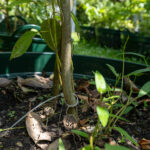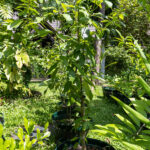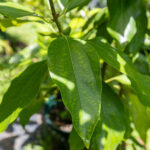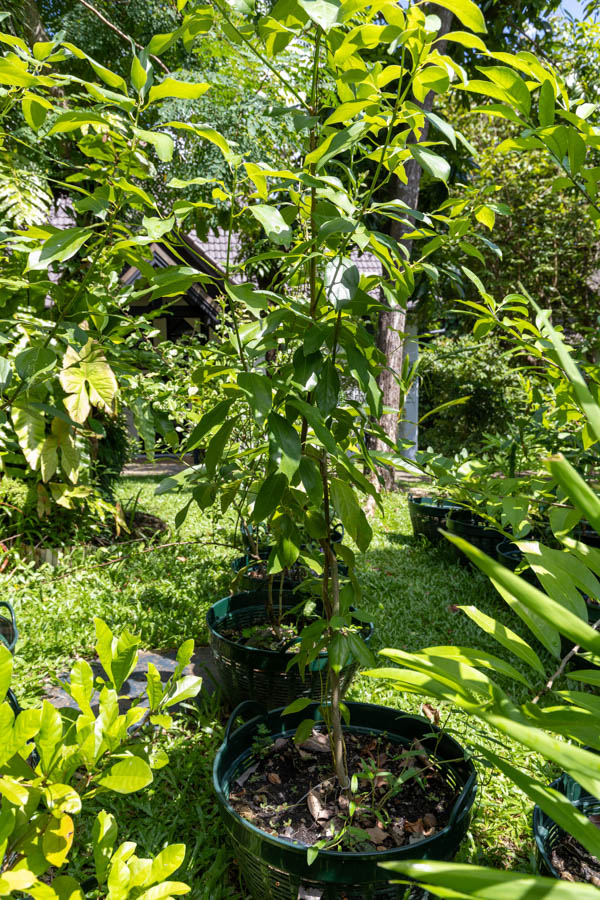พริกไทย (Prik Thai) / Black Pepper
Family: Piperaceae
Piper nigrum, known as Black Pepper or พริกไทย (Prik Thai), is a perennial climbing vine native to South India and widely cultivated throughout tropical Asia, including Thailand. It is one of the oldest and most valuable spices in the world, prized for both flavor and healing properties.
Botanical Characteristics
The plant climbs using aerial roots that attach to trees or supports. It has heart-shaped leaves and produces small round berries (peppercorns) arranged on slender spikes. The fruits change from green to red when ripe and are dried to produce black pepper. The plant thrives in warm, humid environments with partial shade and rich soil.
Use in Thai Traditional Medicine
In Thai herbal medicine, พริกไทย is classified as a warming herb (ยาอุ่น). It is used to stimulate appetite, enhance digestion, relieve gas, and improve blood circulation. The herb is often added to traditional formulas for treating colds, fatigue, and sluggish metabolism.
Culinary and Nutritional Uses
Black pepper is a fundamental Thai spice, found in soups, curries, and marinades. Beyond its pungent taste, it aids in nutrient absorption and is believed to strengthen the body. Pepper oil and extracts are also used in massage blends for warming the muscles and joints.
Cultivation Notes
Piper nigrum is best grown in partial shade with consistent moisture. It can be propagated from stem cuttings and requires a support structure for climbing. In the KBE Thai Medicinal Herb Garden, it is cultivated as both a culinary and medicinal vine, symbolizing the connection between food and healing.
Historical Context
Known since ancient times as “black gold,” pepper played a central role in global trade routes linking Asia to Europe. In Thailand, it remains a household staple and an essential herb in traditional healing systems, representing warmth, vitality, and resilience.
Disclaimer: This information is provided for educational and historical purposes only. It is not intended as medical advice. Always consult a qualified healthcare professional before using any herbal preparation.




